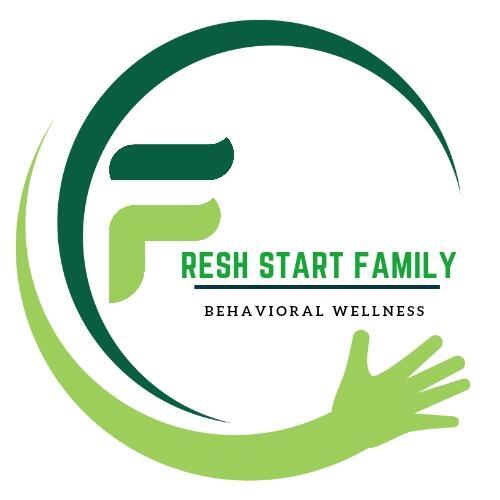Stress is your body’s natural response to pressure, danger, or change. It’s how you react when faced with a challenge—be it a work presentation, a tough family situation, or a life-altering event. While stress can be a motivator in the short term, chronic stress can harm your health. That’s why learning practical tips to manage stress is essential for long-term well-being.
The stress response triggers physical reactions in the body, such as increased heart rate, muscle tension, and changes in breathing. When stress becomes chronic, these reactions can lead to physical problems like high blood pressure, heart disease, and chronic headaches. Emotionally, stress can trigger depression, anxiety, and burnout, making it harder to cope with daily demands.
Understanding stress—and recognizing when it’s becoming unhealthy—is the first step toward managing it effectively.
Types of Stress

It’s important to know that not all stress is the same. Stress can be categorized into several types, and each type may require different strategies for managing it.
- Acute Stress: This is short-term stress that arises from specific events like a big presentation, a job interview, or a challenging project. While uncomfortable, acute stress typically subsides after the event passes. Managing acute stress is often about using immediate coping strategies like deep breathing, mindfulness, or a quick break to regain composure.
- Chronic Stress: This type of stress is ongoing and can last for months or even years. It’s often the result of prolonged exposure to pressure, such as work demands, financial struggles, or family conflicts. Chronic stress has serious long-term effects on both your physical and mental health and requires ongoing management.
- Episodic Acute Stress: Some people frequently experience acute stress episodes, making it feel as though the pressure never lets up. Individuals with episodic acute stress might feel that they are always on the brink of a meltdown, which can lead to irritability, mood swings, and burnout.
- Eustress: Unlike the other types, eustress is “positive stress.” This type of stress occurs when we take on challenges that are exciting but manageable, like starting a new job or training for a marathon. Eustress can be motivating and help us grow. Managing eustress involves recognizing it as a healthy motivator and using it to drive personal development without letting it become overwhelming.
Common Causes of Stress in Modern Life

Stress is an inevitable part of modern life, and understanding its sources is crucial in taking control of how we respond to it. Several factors can contribute to stress, and being aware of these common causes can help you manage your reactions and improve your well-being. Here are some key sources of stress:
- Work-Related Stress: Tight deadlines, demanding bosses, long hours, and job insecurity are common causes of workplace stress. The pressure to meet expectations can create ongoing tension and burnout.
- Financial Concerns: Many people experience stress from worries about managing money, paying off debt, or meeting daily expenses. Financial instability can create constant anxiety, especially when long-term financial goals feel out of reach.
- Family and Relationship Pressures: Caring for children, managing relationships, and supporting aging loved ones can lead to emotional exhaustion. Balancing these responsibilities while maintaining personal well-being is challenging.
- Societal and Environmental Stress: External factors like political unrest, economic instability, climate change, and even natural disasters can add a constant layer of stress. The uncertainty of the future can make it difficult to feel secure.
Recognizing these triggers can help you better manage your stress by addressing the root causes directly.
The Hidden Cost of Unmanaged Stress

When stress is left unmanaged, its impact can ripple through various aspects of your life, often leading to long-term consequences. Here are some of the hidden costs of unchecked stress:
- Mental Health: Chronic stress is a major contributor to mental health issues, including anxiety and depression. Over time, it can lead to burnout, leaving you feeling drained, unmotivated, and disconnected. Persistent stress can also impair cognitive functions, affecting memory, concentration, and decision-making abilities.
- Physical Health: Stress is not just a mental burden—it can have serious physical consequences. It is linked to a range of health problems such as heart disease, high blood pressure, sleep disturbances, digestive issues, and weakened immunity. The body’s prolonged “fight-or-flight” response can strain various systems, making it more difficult to recover and maintain optimal health.
- Relationships: Stress doesn’t just affect you; it impacts those around you. Unmanaged stress can lead to irritability, mood swings, and poor communication, increasing the likelihood of conflict in relationships. Personal and professional connections may suffer as stressors overshadow the ability to engage meaningfully with others.
Recognizing these risks highlights the importance of addressing stress early to protect your mental, physical, and emotional well-being. Taking proactive steps to manage stress is essential for leading a balanced, healthy life.
Doable Tips to Manage Stress Effectively

The key to managing stress effectively is consistency and finding a routine that works for you. Here are some evidence-based, actionable tips that can help reduce stress levels and improve your overall well-being:
1. Exercise
Physical activity helps reduce stress hormones and boosts endorphins, enhancing mood. Whether it’s walking, jogging, yoga, or dancing, just 20-30 minutes daily can make a big difference in relieving stress.
2. Mindfulness & Meditation
Mindfulness practices, including meditation and deep breathing, are powerful tools for managing stress by centering your attention on the present moment and calming your nervous system.
- Start Small: Begin with just 5–10 minutes a day. Sit quietly, focus on your breath, and gently redirect your mind when it wanders. Short, consistent sessions are more beneficial than occasional long ones.
- Deep Breathing Techniques: Try deep, slow breaths—inhaling through your nose for 4 seconds, holding for 4 seconds, and exhaling through your mouth for 6 seconds. This activates the parasympathetic nervous system and reduces anxiety.
- Body Scan Meditation: Mentally scan your body from head to toe, noticing areas of tension without judgment. This helps you become more aware of physical stress symptoms and allows you to consciously relax them.
- Mindful Observation: Choose an object, sound, or even a part of nature to observe closely. Focus all your attention on it for a few minutes to practice staying present.
- Use Guided Meditations: Apps like Headspace, Calm, or Insight Timer offer audio guides that can help beginners stay focused and learn different techniques.
- Create a Ritual: Set a regular time and place for your mindfulness practice. Making it part of your routine reinforces the habit and signals to your brain that it’s time to relax.
- Journal Afterwards (Optional): Spend a minute jotting down how you feel after meditating. This reflection can help track your progress and motivate continued practice.
3. Time Management
Stress often stems from feeling overwhelmed by tasks. Organizing your schedule, prioritizing responsibilities, and breaking tasks into smaller steps can alleviate this. Tools like to-do lists and digital apps can aid in managing tasks effectively.
4. Social Support
Reaching out to friends, family, or support groups provides emotional relief and reduces feelings of isolation. Sharing challenges with trusted individuals can offer comfort and a fresh perspective.
5. Sleep Hygiene
Poor sleep contributes to stress, and stress disrupts sleep. Improve your sleep by keeping a regular sleep schedule, creating a calming bedtime routine, and ensuring a comfortable sleep environment. Avoid caffeine, heavy meals, and screens before bed.
6. Setting Boundaries
Learn to say no to avoid taking on too many commitments. Setting boundaries helps protect your time and energy, allowing you to focus on what’s most important without feeling overextended.
7. Relaxation Techniques
Practices like progressive muscle relaxation, deep breathing, or aromatherapy can help reduce physical tension caused by stress. Essential oils, like lavender, or mindful stretching can further alleviate stress symptoms.
By integrating these tips into your daily life and making them habits, you’ll be better equipped to manage stress in a way that supports your mental, emotional, and physical health. It’s not about eliminating stress, but rather learning how to respond to it in a healthy, productive way.
How to Know When You Need Extra Help

While stress is something we can manage with the right strategies, there are times when it becomes too overwhelming to handle on our own. If you feel consistently drained, anxious, or unable to cope, it might be time to seek extra support. Here are some signs that professional help may be needed:
- Persistent Feelings of Overwhelm: If you feel constantly overwhelmed, even after implementing stress management techniques, it may indicate that stress has become chronic.
- Emotional Exhaustion: Experiencing fatigue, irritability, or emotional burnout is a sign that stress negatively impacts your mental health.
- Difficulty Managing Daily Tasks: When stress begins to interfere with your ability to handle everyday responsibilities, such as work, family commitments, or self-care, it’s time to ask for help.
- Physical Symptoms: Headaches, sleep disturbances, muscle tension, or other stress-related physical symptoms can signal the need for professional intervention.
Seeking therapy or counseling can provide additional coping mechanisms, helping you regain balance and improve your mental well-being.
Taking Control of Your Stress and Health
Managing stress is a lifelong journey, but with the right strategies, you can take control of your well-being and lead a more balanced life. Start small, practice regularly, and be kind to yourself as you incorporate stress-management techniques into your daily routine.
Remember, you don’t have to go through it alone. If stress is affecting your quality of life, reach out to a professional for support. A Fresh Start Behavioral Health Services, we help guide you through stress management and provide personalized support to help you lead a healthier, more fulfilling life.
Contact us today to begin your journey toward a stress-free life and reclaim your peace of mind.

